Courage, commitment, and conviction: Why people are joining the AFP as reservists
In recent years, we've seen a number of people in the public eye—such as government officials and celebrities—join the Armed Forces of the Philippines (AFP) as reservists.
Composed of citizen soldiers, the reserve force has varying functions. According to Republic Act No. 7077, they could be deployed in the event of war, invasion, or rebellion, assist in relief and rescue operations, assist in socio-economic development, and assist in the operation and maintenance of essential government and private utilities.
Being part of the military is no easy task considering the physical and mental challenges it poses. Why then are these everyday citizens—who already have full-time jobs—answering the call of duty?
'Actualizing sense of patriotism'
According to Philippine Insitute for Development Studies (PIDS) research fellow Adora Navarro, who's a Navy reservist herself, more people might be joining the reserves because of the benefits.
"The incentive is more on gaining a larger set of skills, actualizing their sense of patriotism, and having a larger network for professional development," she told PhilStar L!fe.
"I actually hope more celebrities would join the reserve force because the media gives exposure to their volunteerism activities and this encourages volunteerism among Filipinos."
It’s an individual decision based on life experience and the particular things they want to do to live out convictions they want to have.
Recently, we've seen the likes of Miss Universe Philippines 2021 Beatrice Gomez and Julia Barretto join as reservists.
Celebrities like Matteo Gudicelli, Dingdong Dantes, Christopher de Leon, Richard Gomez, and Elmo Magalona are also part of the army reserves, while Ronnie Liang, Arci Muñoz, Wynwyn Marquez, and JM De Guzman are in the marines.
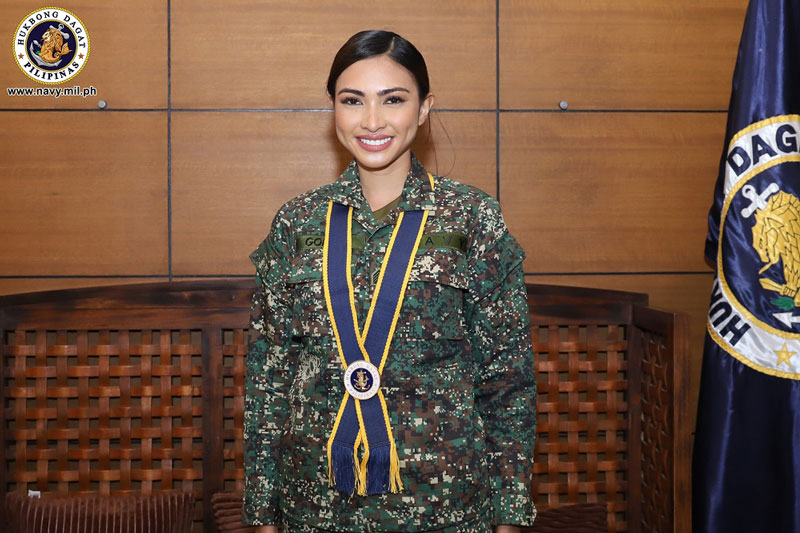
I actually hope more celebrities would join the reserve force because the media gives exposure to their volunteerism activities and this encourages volunteerism among Filipinos.
Meanwhile, Bangko Sentral ng Pilipinas (BSP) Managing Director Tony Lambino, a lieutenant colonel in the Air Force Reserve, says we all serve in different ways.
"It’s an individual decision based on life experience and the particular things they want to do to live out convictions they want to have."
The two government officials joined the reserve force because of their interest in national security and as part of their master's program at the National College Defense of the Philippines (NDCP) on National Security Administration.
Getting a glimpse at what our soldiers go through
Reservists—save for a few exemptions—are required to go through basic military training. These government officials got a first-hand glimpse of the physical tests that soldiers experience.
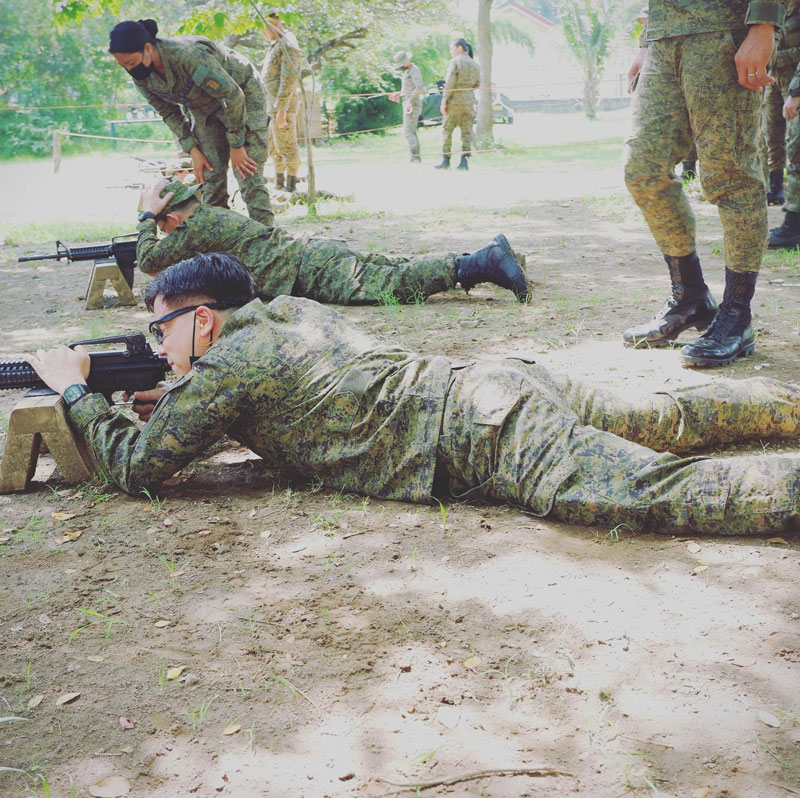
"I was told I was one of the few government officials who did the reception rights but I wasn’t thinking about it at the time. I just wanted to do well,' Lambino shared. "That’s when you go to Villamor Air Base in jeans and a white t-shirt and they really make it an intense initiation—they make you roll in the mud, do lots of push-ups, and all these physically strenuous activities."
The BSP official also went through rescue training, shooting, and deployment to the field and mountains.
We were all very busy with our own jobs, lalo na many of us were directly or indirectly involved with pandemic response, but we really put our heart into it because, in the end, it’s about human security.
To prepare for training, Navarro readied herself mentally and emotionally so she could brace for the physical hardships that were to come.
"It was my body that wasn’t physically prepared, haha," she said. "At one point, I had to be rushed to the school’s hospital for emergency intervention because I got dehydrated. But I was sufficiently challenged and told myself 'Laban lang!' and after a quick recovery, I was able to catch up with my fellow trainees.
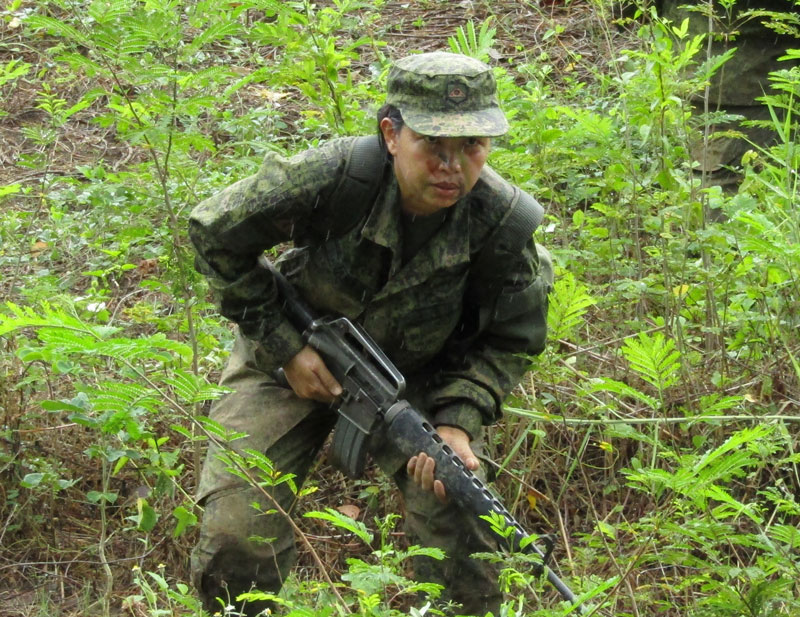
Different ways to serve
Reservists have varying duties—they aren't just deployed for security purposes. Their duties depend on their skill set and capabilities.
Commissioned earlier in August, Navarro awaits assignment. She was told that newly accepted reservists will be assigned to geographic areas based on their address and will be given opportunities to serve or volunteer based on their skills and capabilities.
"In my case, I’m supposed to be under the Naval Reserve Central Command-NCR because I live in Metro Manila. I had also relayed that I am skilled in conducting research and analyses and that I had applied my skills in the security sector when I helped a Philippine Navy study group in assessing the national security implications of the Hanjin shipyard closure in 2019 and when I became part of the government’s representatives to the peace talks with communist insurgents in 2017," she said.
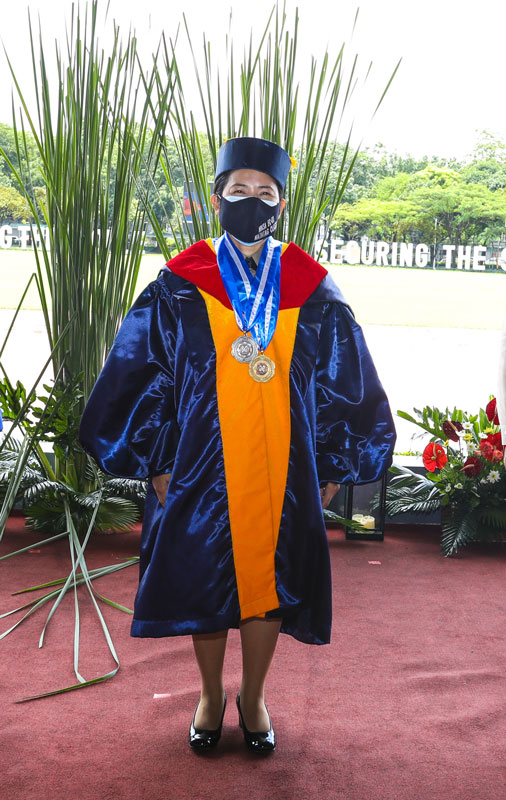
Meanwhile, Lambino was deployed to checkpoints at the beginning of the pandemic to check people's temperatures, distribute goods to communities in Cagayan Valley after they suffered major flooding, and took part in sessions where they reviewed long-term strategies and decisions of the Philippine Air Force.
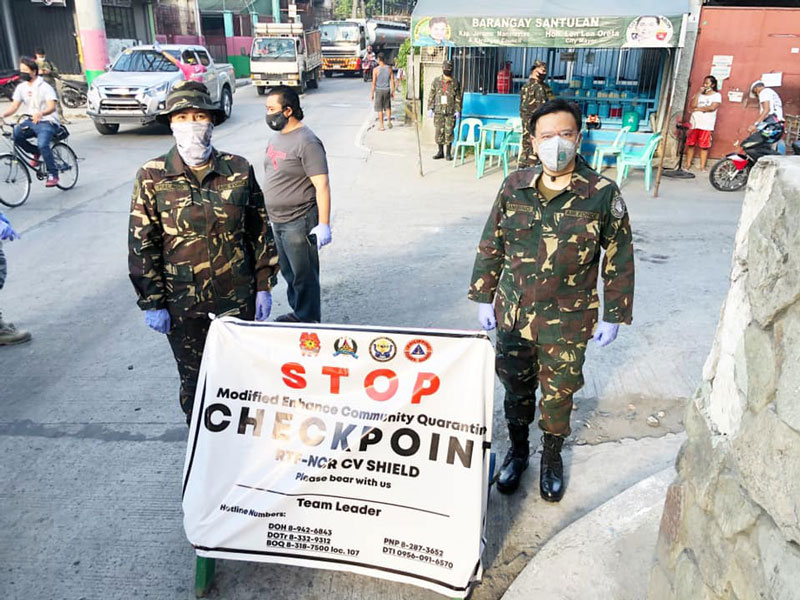
"We were all very busy with our own jobs, lalo na many of us were directly or indirectly involved with pandemic response, but we really put our heart into it because, in the end, it’s about human security," Lambino said.
Having gone through the training to become a reservist, the government official shared that he's still the same person since. "These are the same things (national security) that align to my commitments and convictions. Whether I'm a reservist or not, I hold the same conviction to public service."
Navarro, on the other hand, came out the other side with more courage.
"I think I am braver now given that I was able to hurdle not only the one-week physical training but also the challenges and controversies I encountered as I was pursuing the one-year national security course. I think my overall experience has given me greater courage, wisdom, and patience," the PIDS research fellow shared.


